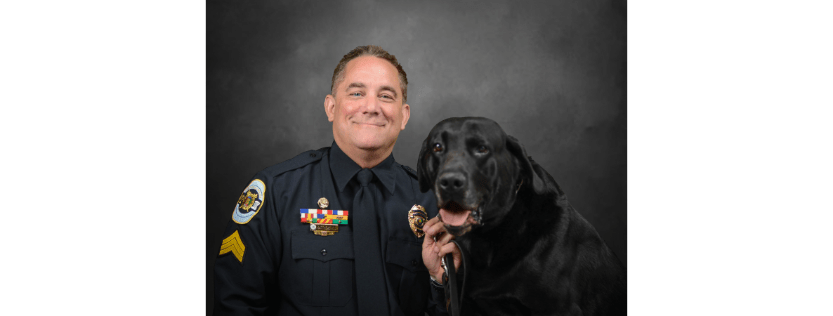Huntsville Police Honors K-9 Boomer as Retirement Highlights the Expanding Role of Working Dogs
The Huntsville Police Department (HPD) celebrated the retirement of one of its most respected four-legged officers this week: K-9 Boomer, an explosives-detection dog who has served the department and the community for six dedicated years. The event marked more than the end of a single K-9 career. It offered a look at how Huntsville’s rapidly growing public safety needs are shaping the future of HPD’s K-9 Unit—one of the longest continuously operating police dog programs in the nation.
Boomer’s service reflects the shifting environment in which modern K-9s operate. Trained specifically in explosives detection, Boomer has worked dozens of large-scale public events, security details, campus incidents, and major city gatherings. He routinely worked alongside federal, state, and local agencies, including the Secret Service, FBI, and Department of Homeland Security. As Huntsville’s profile has expanded—thanks to Redstone Arsenal, a booming tech sector, and major entertainment venues—explosives-detection teams have become essential infrastructure. A single K-9 sweep can replace between five and ten human officers, making these units a cost-efficient and time-saving component of city operations.
Economic Value of K-9 Units
The cost-efficiency of K-9 teams is especially important as the demands on the unit continue to grow. Huntsville hosts more festivals, concerts, marathons, and high-profile visits than ever before. With increased tourism and a greater federal presence, the city relies heavily on K-9 teams to secure large crowds and protect critical infrastructure. HPD’s long-standing K-9 Unit history has also fostered deep partnerships with organizations like the FBI, ATF, and Redstone Arsenal Police, giving Huntsville operational advantages that similarly sized cities rarely have.
Boomer’s retirement underscores the economic cycle of working-dog programs. While K-9s save both time and personnel, they also require significant investment. Purchasing and training a new police dog can cost anywhere from $10,000 to $30,000, depending on specialization. Modern standards require additional equipment, including ballistic vests, heat monitoring systems for patrol cars, specialized leashes and harnesses, and advanced veterinary care. Dogs must be recertified annually, trained continuously, and paired with handlers who receive advanced instruction themselves. Most K-9s retire after six to seven years, so agencies like HPD must plan replacement costs far in advance.
Why Robots Can’t Replace K-9s
Even with the advent of robot dogs in some law enforcement agencies, biological K-9s remain far more capable. Robot units cost hundreds of thousands of dollars and require specialized operators, maintenance, and software upgrades. Most importantly, they cannot reliably detect explosives or narcotics at biological sensitivity levels. They also cannot track human scent through complex terrain or safely navigate unpredictable conditions that a trained K-9 handles naturally. In Huntsville, where officers often search for missing children, seniors with dementia, or people experiencing mental health crises, the human–animal partnership is irreplaceable.
Beyond Detection: Community Safety and Search Operations
Nationwide, K-9 teams locate more missing persons than fleeing suspects—a trend mirrored in Huntsville. Since 2023, HPD’s Crisis Intervention Team has increasingly relied on K-9 handlers during searches connected to mental health calls. Dogs trained for patrol, scent tracking, or evidence detection can cover large areas far faster than human teams, helping reunite families or resolve emergency calls that might otherwise escalate.
A Legacy of Safety and Efficiency
Boomer’s retirement celebration highlighted both tradition and innovation within HPD’s K-9 program. The unit is not only part of Huntsville’s policing history—it is part of the city’s economic infrastructure. Every major event secured, every hour of officer labor saved, and every search accelerated translates into measurable value for a city experiencing rapid growth.
As for Boomer, the department reports he will enjoy a well-earned retirement at home with his handler, Sargent Kevin Matthews, trading high-stakes sweeps and crowded festival grounds for a life of rest and play. His service illustrates what HPD’s K-9s contribute daily: safety, efficiency, and capabilities that technology still cannot match. As Huntsville looks to the future, the legacy of dogs like Boomer ensures the K-9 Unit will remain a vital part of the city’s public safety strategy for years to come.
















